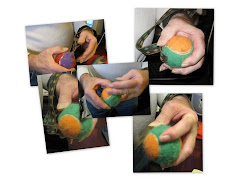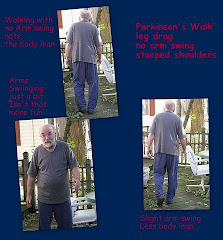GDNF anf Parkinson's Disease
GDNF is a protein that helps brain cells grow and protects them from death. It was developed by biotech firm Synergen. Amgen bought Synergen in Dec 1994 for $240 million dollars. Amgen thought they could use GDNF to grow new dopamine-producing cells to slow the progression or stop Parkinson's disease.
GDNF, glial cell derived neurotrophic factor, does not travel through the brain blood barrier so it can't just be given as a pill or an injection, it has to be placed directly in the area of the brain where it is needed.
GDNF is a protein that helps brain cells grow and protects them from death. It was developed by biotech firm Synergen. Amgen bought Synergen in Dec 1994 for $240 million dollars. Amgen thought they could use GDNF to grow new dopamine-producing cells to slow the progression or stop Parkinson's disease.
GDNF, glial cell derived neurotrophic factor, does not travel through the brain blood barrier so it can't just be given as a pill or an injection, it has to be placed directly in the area of the brain where it is needed.
Dr. Steven Gill at Frenchay Hospital in Bristol, England designed a system using two abdomen pumps, two holes drilled through the skull and two narrow catheters to deliver the drug to the brain. All five patients receiving the treatment showed improvement. In another group of patients at the University of Kentucky all ten showed improvement. All of these patients knew they were getting the drug so a placebo effect was possible.
Phase II compensated for the placebo effect by enrolling 34 patients, half received GNDF and half saline solution. The results were mixed, some patients on saline did as well as those who got GDNF. A few patients developed antibodies to GDNF. Amgen stopped the tests in September 2004 amid controversy. Some patients had improved greatly and wanted Amgen to continue making GDNF available to them as a compassionate use, but the company refused. There were court cases but Amgen won every case.
In Sept 2008 Amsterdam Molecular Therapeutics (AMT) licensed the right from Amgen to use their GDNF gene and AMT's gene therapy platform to develop a new gene therapy treatment for Parkinson's disease.
AMT will use its adeno-associated virus (AAV) technology in the assessment of the gene’s potential to protect and enhance the function of the nerve cells that produce dopamine. If they are successful in a few years it may be possible to inject a benigin virus under the skin or in a muscle that will stop the progression or cure Parkinson's Disease.
Sources:
New York Times ,7/18/1994
Phase II compensated for the placebo effect by enrolling 34 patients, half received GNDF and half saline solution. The results were mixed, some patients on saline did as well as those who got GDNF. A few patients developed antibodies to GDNF. Amgen stopped the tests in September 2004 amid controversy. Some patients had improved greatly and wanted Amgen to continue making GDNF available to them as a compassionate use, but the company refused. There were court cases but Amgen won every case.
In Sept 2008 Amsterdam Molecular Therapeutics (AMT) licensed the right from Amgen to use their GDNF gene and AMT's gene therapy platform to develop a new gene therapy treatment for Parkinson's disease.
AMT will use its adeno-associated virus (AAV) technology in the assessment of the gene’s potential to protect and enhance the function of the nerve cells that produce dopamine. If they are successful in a few years it may be possible to inject a benigin virus under the skin or in a muscle that will stop the progression or cure Parkinson's Disease.
Sources:
New York Times ,7/18/1994
Medical News Today, 9/27/2008
Andrew Pollack, New York Times 11/26/2004
Parkinson's Med,Sept 13,2008
Science News 2003
Andrew Pollack, New York Times 11/26/2004
Parkinson's Med,Sept 13,2008
Science News 2003














